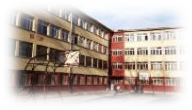
BULGARIA
119 Secondary School “Academician Mihail Arnaudov”, Sofia
Our school is situated in Sofia, the capital of Bulgaria. The school is one of the biggest schools in Sofia, preferred by parents because of its great location. It exists for more than 50 years. We have 1500 students. Our students are from 1st to 12th grade, from 7 to 18-19 years old. We teach compulsory subjects like Bulgarian language and literature, Maths, History, Geography, English, Physics, Chemistry, Biology, Psychology and Logic, Philosophy, PE.
In the primary level we use programs of Junior Achievement to teach entrepreneurship to our students for 7 years. At higher level we teach Entrepreneurship to our students for 4 years.
After the 4th grade /at secondary level /we have 5 profiles: Maths, Human and Nature, Physical education, Languages – Bulgarian and Russian. All our students study English as a foreign language.
After 7th grade we accept new students for higher education which means they have to be good students during their primary education. At higher level /from 8th to 12th grade/ we have 4 profiles: Humanitarian /English, Bulgarian, History and Civilization, Philosophy/, Earth Science /Biology and Health education, Geography and Economy and Chemistry/ , Languages – /English, Russian, French and History and Civilization/ and Technological / Entrepreneur / Marketing, Accounting, Management/.
All our students at higher level study English as a foreign language. In our work we try to prepare students for the challenges of their future life. Current situations are very challenging for young people and education as they have to be ready to appear on a job market, look for a job, sometimes migrate, get used to new situations, cope with unemployment, economic and financial crisis in their countries and Europe. Schools and teachers have to give them “necessary tools” to be able to exist in the contemporary world.
We have developed various educational projects that work as motivation for students and, in this way, wrong behaviours diminish through their involvement in the projects. We work constantly on our Ministry of Education’s program “Success” and we involve our students in different activities that help them to improve their knowledge. As inclusive education is very important for the staff and the students, in our work we aim to provide an enjoyable, broad and balanced program within the guidelines of the national curriculum. The structured and developmental programs of study provide for progression, challenge and a sense of achievement. In addition to core lessons we offer extracurricular activities – clubs running during lunchtime and after school and during holidays. The whole philosophy of the program is based upon enjoyment, competition and participation. We enter a wide variety of competitions of different kind. We have developed strong relationships with the local community, local Council, Municipality of Sofia, Regional Inspectorate and Ministry of Education.
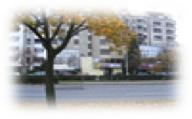
CROATIA
Privatna gimnazija i ekonomsko-informaticka skola Futura s pravom javnosti, Zagreb
Our school is a small private school located in Zagreb, capital city of Croatia. We are a secondary vocational school that educates economists and IT technitians. We also have general education programmes that were approved by our Ministry of education this year, so we will be starting with these programmes in the next school year. Our students are from 15 to 19 years old and we currently have 102 students. We have 25 teachers and most of them are full-time employees of the school. Our school is oriented to the future and promotes innovative teaching methods and tight integration of ICT in educational process. All educational materials are available to students via Internet (online class application) and school is very well equipped with computers, projectors and other work materials.
Most of our students come from a good social background and are of Croatian nationality. Our economy and IT students have 2 types of subjects: general education and vocational. Aim of general education subjects is to prepare students for matura, which is state exam obligatory for all students who wish to go to college. Aim of vocational subject is to give students theoretical and practical knowledge and experience regarding their vocation. They don’t have practical work in their programmes, so we tend to give project-oriented classes where we do practical projects with students that bridge the gap between us and the real world, work situations.
After finishing secondary school, most of our students continue their studies in the field of economy and IT. Some get jobs which are mainly in their family businesses. Goals of the school are: – gaining European dimension – increasing level of students’ interest in school and their academic success – giving vocational students practical experience in their field of education In Croatia and Europe both economy and IT are in very high demand, expacially for workers that think critically, are independent and responsible, know their area of expertise, have work habits and know English really well. Those are characteristics we try to foster in our students.
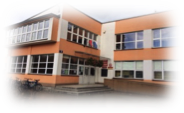
POLAND
Zespol Szkol Ogolnoksztalcacych Integracyjnych nr 1, Kraków
The Integrating General School Complex no.1 in Cracow consists of two schools: Janusz Korczak Primary School with Integrating Classes no. 12 and Janusz Korczak Gymnasium with Integrating Classes no. 15.
The school is situated in the Krowodrza municipality, near Cracow’s city center and is surrounded by green areas. Over 610 pupils attend our school, including 100 directed for special education in the integrating class system. The primary school comprises 16 classes, 7 of which are generally accessible and 9 are integrating classes; the gymnasium comprises 13 classes, 2 of which are generally accessible and 11 are integrating classes. There are currently 98 teachers and other specialists, and 12 administrative and service employees employed at our school. We have 22 classrooms and labs, 2 gyms ( one big and one small adapted to choreotherapy), a biofeedback lab, one daycare room, a school canteen, a big and modern outside sports ground, a playground and almost 1 hectare of green area.
The school eliminated all architectural barriers, we have internal and external ramps and an elevator for the disabled. Particular emphasis is placed on adapting the curricular requirements to the capabilities and needs of all pupils, modifying programs and individualizing the learning process, in order for each student to achieve success.
The students’ success is evaluated accordingly to their personal intellectual and psycho-physical abilities. Our whole school community unites in our common aims: creating a pupil-friendly environment, creating the right pedagogical atmosphere, integration of disabled pupils with their peers, a comprehensive development of children to their maximal intellectual and mental capabilities. The school activities are based on universal ethical principles, respecting the Christian system of values. The most important values for the facility are: wisdom, love, justice.
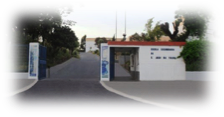
PORTUGAL
Agrupamento de Escolas de São João da Talha, Loures
Agrupamento de Escolas de São João da Talha is a group of 6 schools from kindergarten to secondary school.
Our target students within this project will be the ones in age between 11-19. We have 1790 students, 158 teachers within the 6 schools – 4 primary schools (1st-4th grades) with kindergarten, 1 elementary school (5th-9th grade) and 1 secondary school (7th-12th grade) from economical disadvantaged suburbs of Lisbon. In our school programme we have for this students: 1. General Education – Science, Economics, Math, Physics and Chemistry, Biology, Foreign Languages (Spanish, French and English), and Arts; 2. Vocational Education – Computer Science, Sports and Gardening; 3. Professional Education – Computer Science, Computer Programming, Electricity.
Our organization is 5 minutes from Lisbon, from North, near a new city centre standing by the main river Tejo. In the parish lies a roma community, whose children represent a minority group with all the implications in school integration and educational success. In the parish still lies the Reception Centre for Refugees, and that’s why we integrated a numerous different nationalities (28 in total) in the various schools and the existence of a large multicultural classrooms.
The group of schools hosts a large majority of pupils with special educational needs and are headquartered in two different schools two Special Units of Support for multi disabled students (6 to 14 years old). Our practice with disabled students (we have more than 178 identified students – the specific cases of students with special education needs are: autism, trisomy XXI, epilepsy, low vision, cerebral palsy, Williams syndrome, Prader Willi’s syndrome, deafnessthis scholar year) is well known and we have professional teachers dedicated to this kids. Our student audience belongs to a social lower middle class, in which 35,1% of the students are receiving economic support, because of their social provenience, with fewer opportunities (socially and economically).
The majority of the population exerts his activity mainly in Lisbon and surroundings. Work obligations do not let parents accompany properly their children at school. We need to develop the entrepreneurial spirit of our students by raising awareness of the social issues from everyday life, attending to a better understand and respect of cultural difference. In that way, our students need to learn more in a way that could open their horizons, in order to be successful in society, and be aware of the others, helping others. We have a quality monitoring system based in CAF (Common Assessment Framework) for Education, that uprise in the last cycle the need of improve learners success and improve discipline and motivation to be in school.
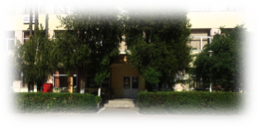
ROMANIA
Liceul Tehnologic “Sfantul Pantelimon”, Bucharest
Liceul Tehnologic “Sfantul Pantelimon” is a public, non-profit, secondary school from Bucharest, Romania with 515 students between 11 and 18 years old, which study in fields like technological (Mechanical, Mecatronics, Electrical, Environment protection), theoretical and vocational-football. A third of our school’s students come from villages outside the city, some of them traveling up to 50 km daily to the school. More than 25% of the student’s families confront economic difficulties and for many of these families the financial effort of the attainment of the school by the children is especially important. A large number of our students show many difficulties in attaining various evaluation exams and, after they graduate, they confront the risk of remaining out of a job for a long period.
Only a few graduated students continue their studies at the university, each year. Here it is needed to mention, also, the high level of early school leaving which is a major cause for the decrease of the number of our students by 25% in the last 4 years. In order to understand better the level of education failure risk, we should mention the fact that, from all the 60 students who have started, in 2012, the first year in technological classes, only 3 students have succeeded to pass the final exam (baccalaureate) in the first session of 2016!! Even if the number is so low, it is important to say that all three were involved in our European projects. Regarding the interest of the parents for the life of our school, we can say that it is rather low. This situation is in direct proportion to the results of their children the low number of parents attaining the meetings or which are coming at school at least one time/semester. In this situation, in our school the promoting of the students’ project participation needs special efforts and divers and repeated activities in order to convince enough parents, even if their children wish to join the project.
On the other side, the group of parents having their children involved in our previous projects proved to be a strong asset for these projects! These parents were involved actively, especially during the transnational activities hosted by us, they have offered a high level of hospitality and in many situations of farewell we so the strong feelings between the families and their guests! We should mention also the contribution of the parents in the local activities, which often are not held in the school and they are outside the normal program of the school.
Instead of these situations, our school has a solid group of well-prepared teachers: 44 teachers, all qualified, from which, 23 are permanent employees of our school. 21 teachers have the highest degree in the Romanian qualification hierarchy for teachers. Many of them are Methodists, members of various national committees for their speciality, authors of handbooks, auxiliaries or tests for the final exams. Maybe, this is the reason of the progress which, actually the results of our students (even they are still insufficient in the case of many of them) register from the final exam after the 8th grade and Baccalaureate! Happily, our good experience in European projects show the direct positive impact of their implementation on the results of the students involved. This impact was above the specific subject of these projects. The projects created an environment where the students learn in a non-formal environment, where they made a huge improve in their competencies in English and ITC, and also in social competencies. Their improvement in the confidence in themselves was visible and, I’m sure, this is one of the main reasons of the rise in their scholar results, starting from the moment when they entered the project team. Of course, the special relationship with the teachers from the project teams, which stimulate them to do a good job as students, had also a huge contribution! Until now, the percent of success at the Baccalaureate exam, for the students involved in European projects is 100%!
